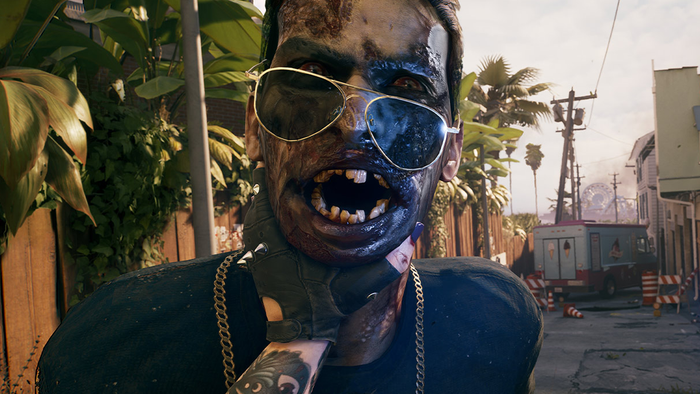Cleaning up the E-Sports Market
Toxic communities have sadly been a part of E-Sports and the competitive crowd for some time. But in recent years there have been developers trying to improve matters and today's post looks at this trend and why it is happening.

E-Sports or competitive multiplayer games have grown from simple tournaments to leagues, sponsorship, professional teams, coaches and of course big money. But the foundation of heated matches has always had a lack of sportsmanship to the proceedings.

Today's post will look at the root of these problems, why companies are taking a stand now and what this means for the developers who are planning on launching a competitive game.
A Heated Atmosphere:
People have been playing games competitively for as long as games have been around. Back during the 80s and 90s, most competitions were localized at arcades. It wasn't until the beginning of the Internet age of the mid 90s-onward where competitive online play became popular.
During that time, most video games had no way of tracking people as online accounts were unheard of. Combine anonymity with high pressure matches and that created a very toxic community. Tournaments where players met in person didn't have this problem as bad, as there were strict rules of sportsmanship and being next to the person made it very hard not to get caught.
But with tournaments and games being held online, it became harder to track these players and the toxicity grew. Not helping matters was that many competitive games seemed to be designed to add further frustration and rage. For many competitive games, because your ranking was determined by your win/lost rate, this made it so that bad matches could come back to affect your future matches and made things even more stressful.
 Riot Game's tribunal system has helped add consequences to bad sportsmanship and cheating for League of Legends
Riot Game's tribunal system has helped add consequences to bad sportsmanship and cheating for League of Legends
Steam's profile system was the first fully realized system to have the means of tracking and reprimanding gamers for causing trouble. Now if someone was being toxic, you could pull up their profile and take the steps to flag that person for Steam to look at more closely.
While this was great for Steam games, it didn't help the majority of competitive titles such as League of Legends which at one point was given the title of most toxic community. However instead of letting things be, Riot Games turned things around with several systems and changes to the rules.
Keeping an Eye on Things:
The rule change Riot implemented was a no tolerance policy with regards to harassing players, creating a toxic environment and cheating. And Riot has stuck to this with dishing out punishments ranging from email warnings all the way up to a complete ban of someone's account if things get too bad.
Because part of League of Legend's Meta game was about the champions you bought and your ranking, this meant that an offending player couldn't just start over easily and would lose a lot of time and money. This created a consequence to cheating or being toxic that added weight to one's actions. Riot has stuck with this and has even banned professional players who broke these rules.
 Blizzard has recently banned players accused of using bots to play their matches to try and create a fair atmosphere for Hearthstone.
Blizzard has recently banned players accused of using bots to play their matches to try and create a fair atmosphere for Hearthstone.
To assist Riot, they created the tribunal system. How it works is that participating players (who must have a good standing and fully leveled account) can sign up to review cases on offending players. If someone gets reported too many times, a tribunal will be set up against that player. Reviewers will be able to watch matches and view chat logs of the offending player and if they mark the player as guilty, the offending player will be punished.
This type of system and the no tolerance policy have not been ignored by other developers and professional leagues and developers are taking note. While these systems may sound extreme to some of you, their importance in the rising market of E-Sports can't be understated.
Why there needs to be Rules:
Even with the debate going on over whether E-Sports can be considered a sport, there is still big money and work that goes into being a professional gamer and running a league. Recently E-Sports players were given access to visas to allow them to enter international countries for tournaments and we're seeing sponsors attaching themselves to teams and games.
 Competitive tournaments like EVO and leagues like MLG have strict rules of conduct for how players present themselves.
Competitive tournaments like EVO and leagues like MLG have strict rules of conduct for how players present themselves.
With all this interest, no one wants things like cheating and poor sportsmanship to ruin a professional match. This is why sports like Football, Basketball and more have rules on professionalism that the players must adhere to. The reason is that the players are as much a part of the brand as the sport and events are. Thanks to competitive players being tied to digital accounts, it makes it a lot easier to track rule breaking activity and punish it. For example, the recent ban of a competitive Counter Strike Global Offensive player in the middle of a match.
And it's important for the developer to have guidelines and systems in place for detecting people who break the rules. Because it's not only about having your player base be affected, but professional tournaments and sponsors as well.
Playing Nice:
Developers are at an interesting crossroad thanks to competitive games and the E-Sports market. Video games are rising in popularity and so are both the validity and reach of professional tournaments. For this trend to continue, developers will have to make sure that rule breakers can be caught and a professional standard must be maintained. This goes not only for developers with online games out now but anyone reading this who is hoping that their game will be the next great e-sports title.
(Reprinted from the Xsolla.com blog)
About the Author(s)
You May Also Like













